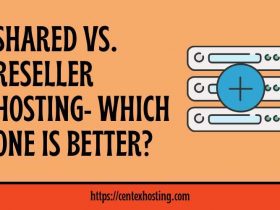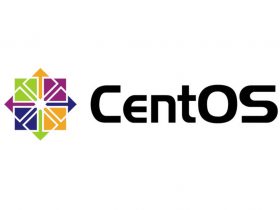Before you think this cloud vs shared hosting article going to be the same old article that compares two hosting solutions and offers you a verdict; and is not based on any real data, stop.
It is not the case.
In this article, we will only provide factual information about hosting providers and try to determine which one can be best for your business. We will do a couple of tests to make sure that you get the best hosting solution even with your eyes closed. let’s check cloud vs shared hosting difference.
But before we get to that, let’s hear a story.
A person hosts three websites on a shared hosting solution. The websites are wonderful and get around 1000 visitors each day.
The sales are coming in. In a short time, these sites have become a money-making machine.
Now, the website owner thinks it is time to take the game one level up.
The very next day, the websites crash.
Why?
The web hosting company tells that the sites were taking TOO MANY RESOURCES of the shared server where they were hosting, so they had to take down the websites.
They also said that the website administrator has to pay double the charges to get the sites restored or he/she can get the backups of those sites for $100.
So, in just a few minutes, not only the site administrator lost his properties but also his data was made hostage.
If you use a hosting provider like this one, you need to be aware of such situations.
Unfortunately, this tactic is applied by every hosting provider out there including the top ones.
Don’t believe me? Try out their shared hosting solutions.
Why You Need a Better Hosting Solution?
A better website hosting solution offers many benefits. For starters, it keeps your data safe. You are no longer limited and at the mercy of your hosting provider. You can scale your website whenever you want and how you want it.
In short, a better hosting solution offers you FREEDOM!
- Scale like a pro
- Add as many websites to your hosting as you want
- Fast, secure, and easy to manage
- Fully automated backups every day
- SSL, CDN, and Dedicated firewalls
Cloud vs Shared Hosting
What is Cloud Hosting?
A cloud hosting solution is a website server that is distributed across the entire data center. This means your website will not rely on a single server and will not share the resources of a single server.
Benefits of a Cloud Hosting
The benefits of cloud hosting are:
- Super-fast performance: You can get speeds of 300ms load speeds for your website
- Complete scalability: The website can be scaled on a whim.
- Multiple Integrations: You can deploy your websites directly from Github. You get a staging area to stage your websites.
- Advanced Security: You get SSL, CDN, IP Whitelisting, Two-Factor Authentication and much more
- Constant Monitoring: 24/7 constant monitoring with New Relic website monitoring and much more.
Speed Test for Cloud Hosting
Let’s test the performance of a website on the Liquid Web Cloud server.
The site loads in less than three seconds. This is better speed than what most websites are loading at.
What is Shared Hosting?
A shared hosting solution is like a single server that is shared among multiple users. They all share the resources including bandwidth, RAM, and storage capacity.
Benefits of a Shared Hosting
- Cheap hosting that you can get for less than $4 per month
- Works great for static websites
Disadvantages of Shared Hosting
- Can be slow in comparison with other hosting solutions: It is because of all the resources being shared among websites hosted on a single server.
- Has higher downtime. A shared server faces more downtime because of all the websites using the bandwidth. These sites often clog the bandwidth when they receive more traffic.
- No backups available: Unlike a cloud hosting solution where automated backups are provided by the company or you can select your own backup automation options, the same facility is not available in shared hosting.
- Low security and no firewalls: There are many security concerns with a shared hosting solution. They don’t have firewalls because of the low cost. Moreover, you can’t make changes to the server because you don’t have the rights.
Speed test of Shared Hosting
This is another website and it is on a shared hosting solution. Now if you see closely the loading time of this website is a lot higher than what you get on a cloud hosting solution. This is because the resources are shared among multiple users. You will get degrading performance when you are on a shared host.
Another important thing to note here is that the performance grade of the website.
In a cloud hosting solution, your website uses cache technology on a cloud hosting stack. This means you will have Redis, Memcached, and Nginx installed that improve site performance. On a shared host, you don’t get any such technologies for improving site performance. Resultantly, your website turns out slow.
Impact of a Bad Hosting Solution
A bad hosting solution can directly impact your business bottom-line. When your website runs slow, it is removed from Google search listings. When it is removed from the search listings, it gets a low number of orders.
In short, a bad hosting solution equates to a low profit for your business. This means you need to move your website to to a better hosting provider to reap all the benefits and get better profits from your business.
Cloud vs Shared: How to Decide?
So, the final question is here: Which one should you choose? A cloud hosting solution or a shared hosting solution? The answer depends on your requirements. However, if you are launching a digital business or moving your business website to a new hosting plan, you would need growth. That’s where a cloud hosting solution proves its mettle. It is a far better option in comparison with a shared, dedicated, or a VPS hosting provider. It is fast, scalable, cheap, and offers many more hosting management features.















